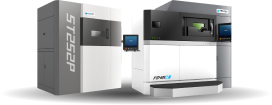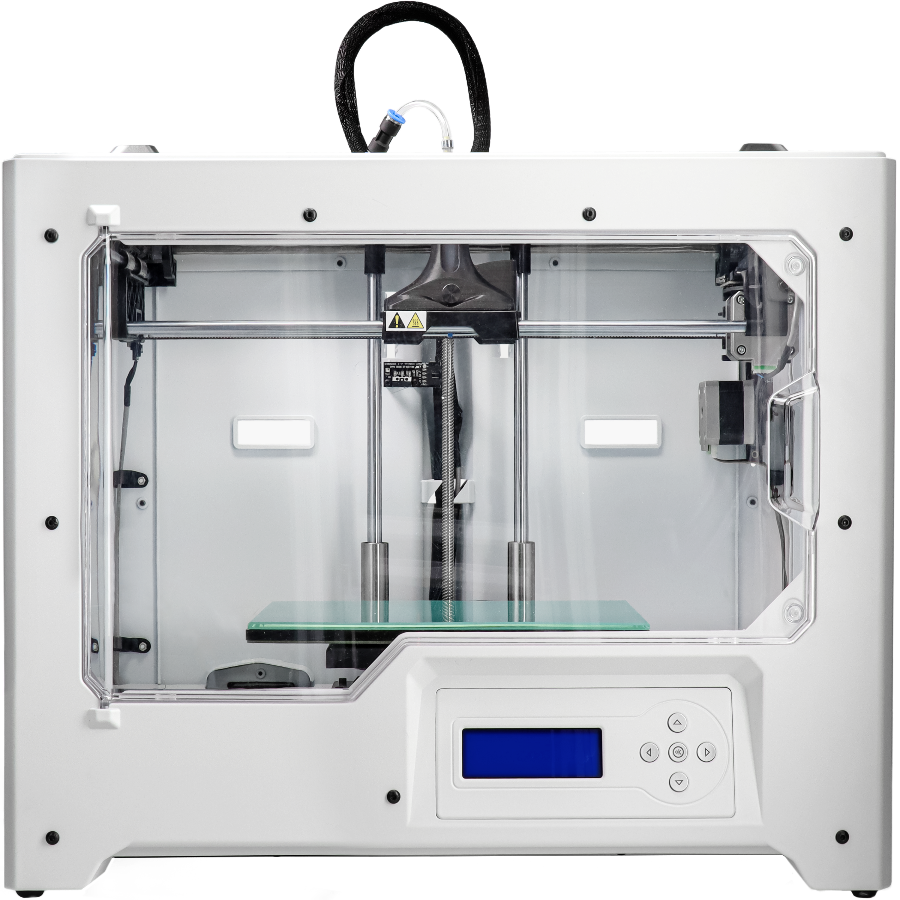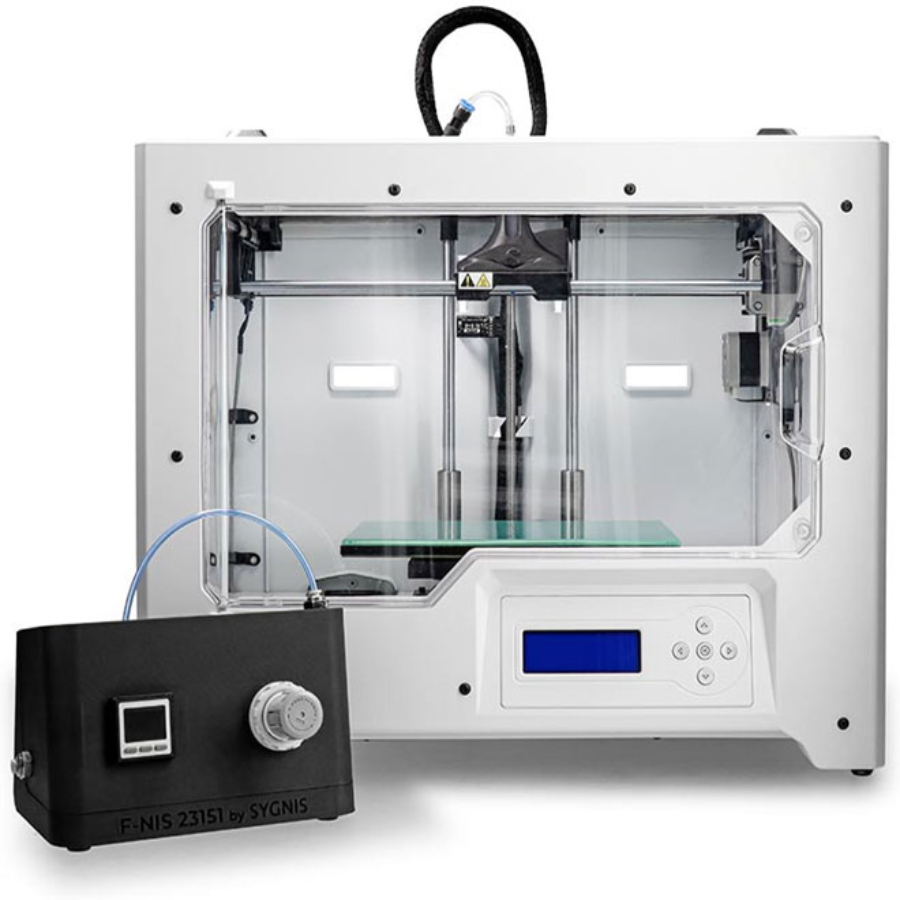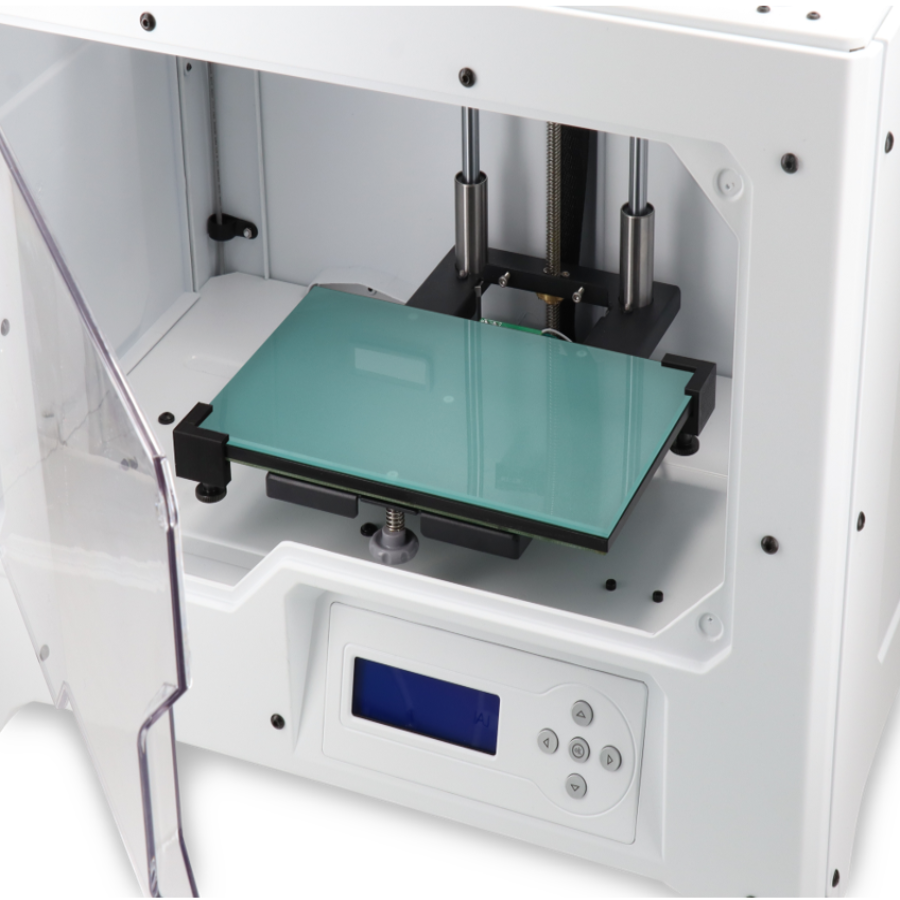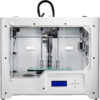

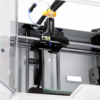
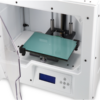
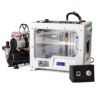
The F-NIS 23151 3D printer is an ideal solution for consumers interested in DIW (Direct Ink Writing) technology. The device offers durable, enclosed construction and full reliability. A precision pneumatic extrusion system was implemented in the design. This combination provides the user with a simple and reliable tool, helpful in the initial stages of proof-of-concept or as a universal base for prototyping original materials in 3D printing. The F-NIS 23151 will find use in industry, chemistry and materials labs or among research groups.
- Printing technology – DIW (Direct Ink Writing)
- Printing area – 9×5.9×5.9 in / 230×150×150 mm
- Printing material – Any one-component paste or semi-liquid material
- Hardware – pneumatic extruder, closed working chamber, upgradable
SYGNIS F-NIS 23151 3D Printer
The SYGNIS F-NIS 23151 3D printer is an ideal solution for consumers interested in DIW (Direct Ink Writing) technology.
Details
| Brand | |
|---|---|
| Printing technology | DIW |
| Number of printing heads | 1 |
| Cartridge size | 30 ml / 50 ml |
| Heated platform | up to 120 °C |
| Working platform material | Tempered glass |
| Print material | Any one-component paste or semi-liquid material |
| Data transfer interface | USB, SD-card |
| Software | Post-processor, included |
| Working chamber type | Closed |
| Extrusion system | Pneumatic (optional compressor with working pressure up to 4 bar) |
| UV Module | UV module with 365 nm and 405 nm wavelengths (optional) |
| Source of light | Post-processor controlled diodes (optional) |
| Head upgrade | Extruder with cartridge heating capability up to 60 °C (optional) |
| Build Volume | 9×5.9×5.9 in / 230×150×150 mm |
| Printing material | One-component paste |
| 3D printers | DIW |
Description
Direct Ink Writing 3D printer for industry, chemistry and materials laboratories. The F-NIS 23151 3D printer is ideal for consumers interested in DIW (Direct Ink Writing) technology. It offers durable, enclosed construction and complete reliability. A precision pneumatic extrusion system was implemented in the F-NIS design. This combination provides the user with a simple and reliable tool, helpful in the initial stages of proof-of-concept or as a universal base for prototyping original materials in 3D printing. F-NIS is effectively used in a variety of areas, including: universities and research Institutes, laboratories, research and development, industrial companies.
UNIVERSAL 3D PRINTING SYSTEM
The versatility of the F-NIS makes it a valuable asset in numerous applications across a broad spectrum of industries and research areas. Its adaptability and reliability cater to the diverse needs of organizations and individuals engaged in innovation and experimentation. F-NIS is effectively used in a variety of areas, including universities and research Institutes, laboratories, research and development, industrial companies.
ADVANCED TECHNOLOGY FOR SPECIFIC NEEDS
F-NIS 23151 working area is a tempered glass platform, with dimensions 230 x 150 x 150 mm that heats up to 120°C. You can print on various materials directly on the forum, such as metal, PMMA, PC, and 3D-printed gaskets, enabling versatile applications. The Pneumatic Box is a device that can be connected to various pressure sources (4 bars with the possibility of increasing to 6-8 bar), allowing for precise pressure control and extrusion.
MATERIAL VERSATILITY
The versatility and adaptability of the F-NIS printer meet the diverse needs of scientists and R&D departments, and the flexibility extends to the adaptability of its components, allowing seamless integration into different research setups and enabling customized configurations to meet specific project requirements. The F-NIS 23151 excels at accommodating a wide range of materials like silicones, ceramic paste, photosensitive resin, and many others.
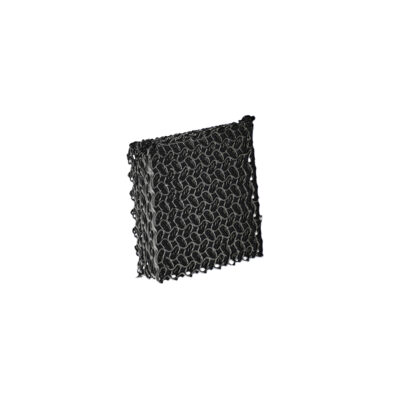




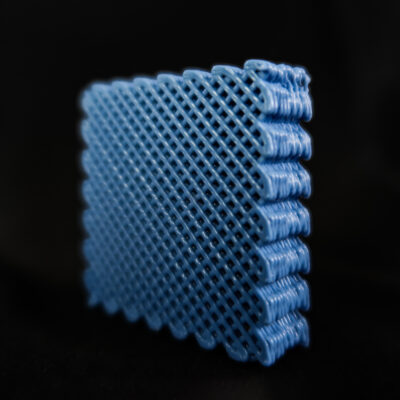
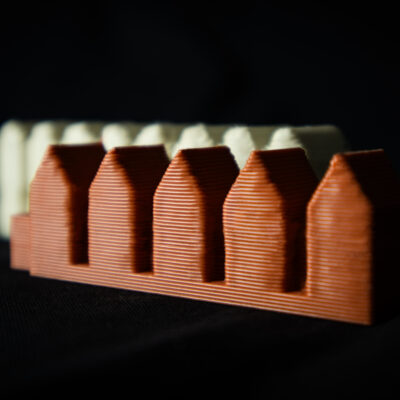


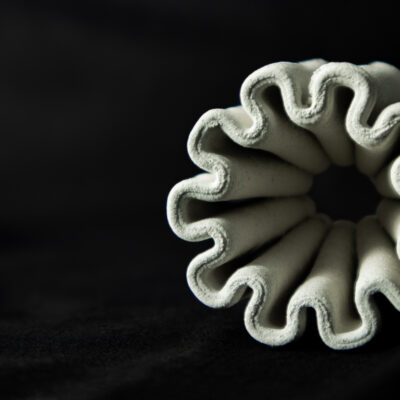
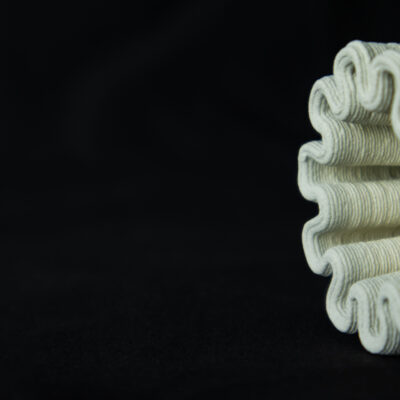
sygnis f-nis 23151 3d printer and diw technology advantages

SIMPLE AND INTUITIVE SEMI-LIQUID 3D PRINTING
Sygnis’ original Direct Ink Writing 3D printers are a gateway machines for everyone conducting material research. It allows them to work various pastes, gels and resins. Sygnis’ DIW 3D printers are simple and helpful tools in the initial stages of proof-of-concept or as a base for prototyping proprietary materials.

WIDE RANGE OF APPLICATION AREAS
The DIW printer allows the seamless print of a wide range of materials, including the precise fabrication of single-component silicone structures, the expert handling of ceramic pastes, and the effortless creation of objects from photo-curable materials. Explore more applications in a variety of industries and sciences on our website.

AFFORDABLE TECHNOLOGY
Discover F-NIS 23151, our proven DIW technology solution. A precision pneumatic extrusion system, which is implemented in the design, provides the user with a simple and reliable tool, helpful in the initial stages of proof-of-concept or as a universal base for prototyping original materials in 3D printing.
industrial applications. case studies
The HydroGEN project – 3D printed sealing for solid oxide electrochemical cell stacks
The HydroGEN project is a modular installation of reversible Solid Oxide Cells (rSOC), intended for integration into an industrial power plant to improve its flexibility of operation and increase the use of renewable energy sources in the hydrogen power sector. It is the brainchild of our partner, the Institute of Power Engineering (IEn). HydroGEN is based on reversible solid oxide electrochemical cells operating alternately according to the power-to-gas (P2G) concept – in electrolyzer (SOE – Solid Oxide Electrolyser) and fuel cell (SOFC – Solid Oxide Fuel Cell) modes. The HydroGEN-based installation was designed and delivered by IEn in form of a container system integrated with EC Elbląg power plant within the Hydrogin project (realized by CBRF Energa Grupa Orlen and IMP PAN). The sealing elements of the solid oxide cell stacks, manufactured by IEn, were made using a low-cost and waste-free 3D printing method on dedicated E-NIS machines designed and manufactured by Sygnis SA.
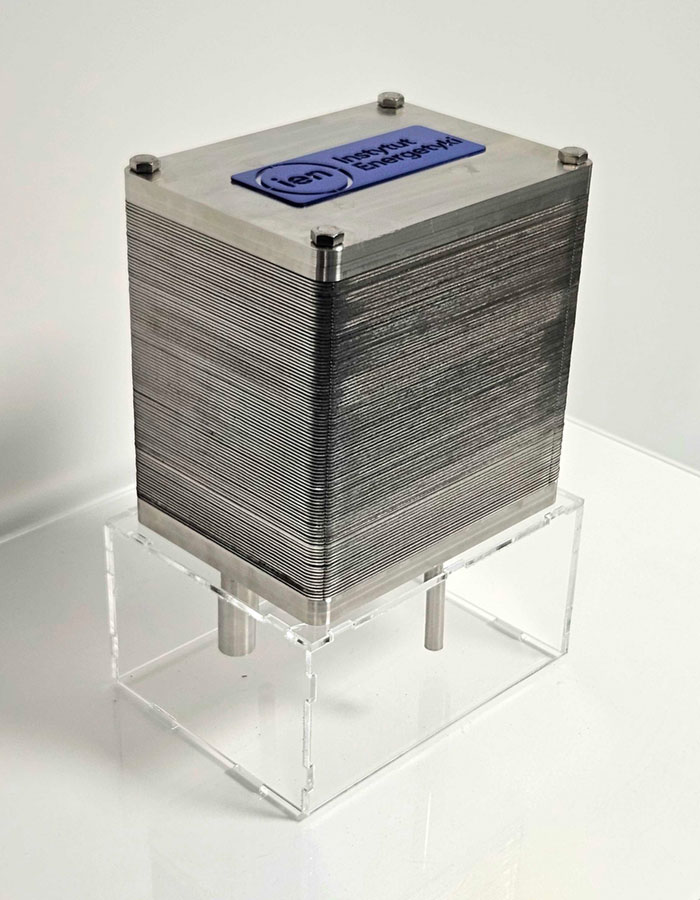
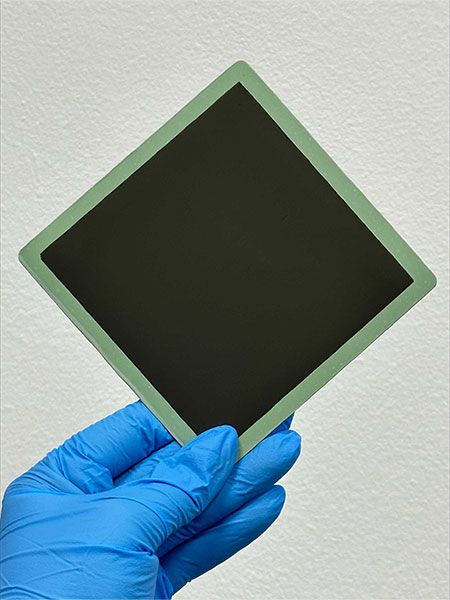
SUCTION CUPS & SOFT GRIPPERS FOR PRODUCTION LINES
3D printing with silicones opens a new chapter in thinking about soft robotics, expands the possibilities to achieve complex geometries and speeds up the emergence of scientific breakthroughs. It’s not just the domain of science – production lines also use a variety of grippers and manipulators. That’s why we have also decided to test the F-NIS – it turns out that it is an excellent machine also for the development of the science of soft robotics.
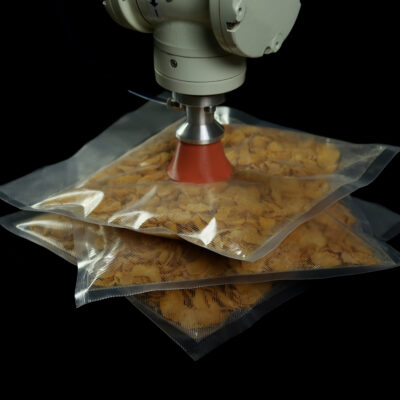


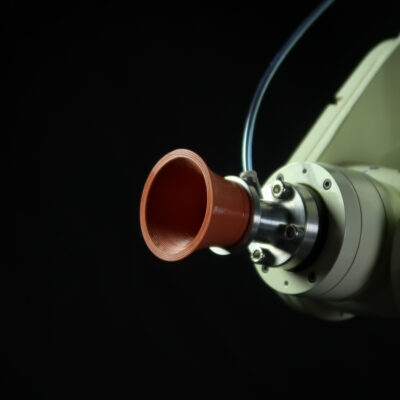
CUSTOM O-RINGS, GASKETS & SEALS
F-NIS technology allows to efficiently produce O-rings with complex cross-sections. This capability enables to meet the specific demands of, for example, the automotive, aerospace, and medical industries, where precise and customized sealing solutions are crucial. By leveraging the flexibility of 3D printing, F-NIS empowers to iterate and optimize the design of O-rings rapidly. This versatility eliminates the need for molds and production lines, enabling customers to create individual functional seals on demand. For instance, you can manufacture industrial silicone seals that meet sanitary standards while maintaining total flexibility despite the layered structure inherent to 3D printing technology. One of the most incredible things about producing sealing elements on F-NIS is the amount of possibilities. It is not limited to simple flat gaskets – the technology is called 3D printing for a reason. These examples are only a few possibilities that highlight F-NIS adaptability and problem-solving capabilities.




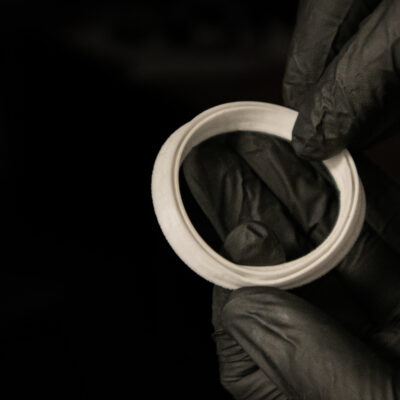



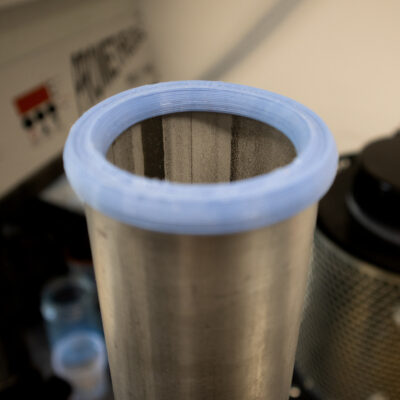

The device is offered in 3 specifications – A, B, and C. You can upgrade F-NIS to higher-end parameters. Additionally, the printer has many specialized accessories that allow you to personalize the device. Optionally, we offer to attach a compressor to the printer. This reliable and trusted device is in operation in numerous labs worldwide. It operates at a working pressure of up to 4 bar and is compatible with European voltage standards.

